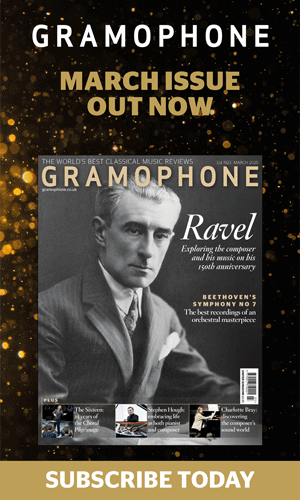Hidden Treasure - Hans Gál’s Unpublished Lieder
Christian Immler
Friday, February 5, 2021
A story of discovery, family and a box of pralines, by Christian Immler

Forgive me for starting with a (fine) food analogy - but we all need some bursts of sensations during this sombre time and after all, I am a singer. Imagine the delight and surprise to discover that the box of pralines you had just finished revealed several more layers of hidden delicacies. Metaphorically speaking, that is exactly what happened when I spoke with composer Hans Gál’s (1890-1987) daughter Eva Fox-Gál, who was the guest of honour after a song recital I gave at London’s Wigmore Hall together with the legendary pianist Helmut Deutsch. We had just performed Gál’s only published set of five solo Lieder, his Op. 33 (1917-21), and in response to our expression of regret that there weren't any more of those fabulously good songs, she simply said: ‘oh - but there are!’.
We subsequently spent two productive days in Eva’s home in York reading through (surprisingly neatly written) manuscripts of Hans Gál’s songs which he had labelled ‘laid-aside’ but luckily not destroyed as was his first symphony which after all had won the Vienna State Prize for composition in 1915!
The songs spoke to me strongly and with great immediacy. Selecting among them for the album was a challenge, but these songs are in no way juvenilia; they have a marvellous, natural flow, and a deep awareness of a singer’s phrasing. Hans Gál called it ‘the plastic modelling of a phrase out of the words’ in his book on Schubert. One wouldn’t expect anything less from a sensitive composer born into Vienna’s ‘Golden Age’. As a close friend of Eusebius Mandyczewski (himself part of the inner circle around Brahms) and co-editor of the new Schubert and Brahms complete editions, it seems inevitable to me that all this would morph into a unique Gál-style.
Some of the songs (not unlike Mahler) require a more orchestral approach and one can sense the proximity of Gál’s first opera Sobeide's Doctor (1917). Perfect for Helmut Deutsch’s fingers which have every conceivable instrument at their disposal!
Arnold Schoenberg’s harmonically daring Verklärte Nacht on a risqué Dehmel text had caused many raised eyebrows in 1902. But Hans Gál wasn’t into hidden messages to be deciphered by a speculating audience. He didn’t agree with the notion of music being a vehicle for the direct outpouring of emotions. A great admirer of Goethe and Heine (with whom, according to his daughter, he shared a detached, often ironic humour) the literary quality of his texts was of primordial importance to him and he was always on the lookout for evocative yet pure lyrics ranging from Walther von der Vogelweide, Christian Morgenstern and Heinrich Heine to Rabindranath Tagore.
But the discovery of these songs is also a family story! Eva’s husband, Anthony, later helped enormously by transcribing them and in Simon Fox-Gál, the composer’s grandson, I found a wonderful producer for our CD, which certainly would have made Hans Gál proud!
To me personally, one of his songs, Three Princesses has a particularly colourful and touching history. It must have been a potent mix of thoughts which went through Gál’s head when composing this song based on Bethge’s The Chinese Flute still during the war in 1917: it’s a sad yet mesmerisingly beautiful ballad set in the far away land of Sym. We have evidence of this song having been performed on the Isle of Man in 1940, whilst Gál was being interned as an ‘enemy alien’.
Reading through and rehearsing music which hasn’t ‘become sound’ for more than a century is for me a powerful combination of curiosity, pioneer spirit and obligation. One is indeed living history! A fact which in hindsight I find even more fascinating is, that during our rehearsals in Vienna, neither Helmut Deutsch nor I talked much about how to best ‘interpret’ these songs. The natural flow of Gál’s captivating melodic lines paired with unusually rich piano accompaniments made us feel as if these songs had been in our repertoire for a long time already. And perfect gems they are! Any incidental similarity to, say, a Brahms song introduction should more be seen (in the Baroque sense) as reverence and not as plagiarism and certainly not as lack of inventiveness by the composer.
The Gál song CD is the first in a planned mini-series of world premiere recordings for BIS Records with Helmut Deutsch. And there are many more composers to be discovered. I am fascinated by the entire inter bellum period (in fact, I am now writing my doctorate about it) with its powerful confluence of highly polarised styles which promises not only more song ‘discoveries’ but will finally allow us to reconnect with an era whose composers lost out on so many levels. I am very grateful to have worked closely with luminaries in their field, such as Erik Levi, Gerold Gruber and Michael Haas from the exil.arte Center in Vienna where Hans Gál’s estate is kept. But the music has to get out of the boxes and into the ears and onto the recital platforms!
Pretty much exactly 100 years ago, Hans Gál overcame disillusionment though personal discipline, integrity and passion to produce beauty. That’s exactly what we need these days. And chocolate (with some whisky).
'Gál: Hidden Treasure' is released today on BIS Records







